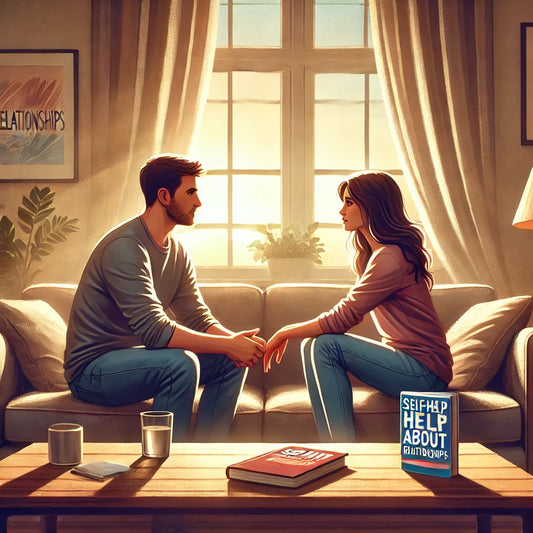Understanding Trauma: Big "T" and Little "t" Life can be bitterly painful. Society understands big “T” traumas, such as physical, sexual, or emotional abuse; memories that will permanently impact someone’s psyche forever. When the brain experiences something so bitterly painful, it actually causes neuroplastic changes in the brain. Scientifically, we can prove this. The brain of someone who has suffered from post-traumatic stress disorder looks markedly different from someone’s who has not. Once exposed to this trauma, we know that the person is changed forever. We do acknowledge this. However, there are little “t” traumas that can be equally painful, such as: divorce, childhood bullying, neglect, moving around due to military status, and we do not always validate that they hurt. Certainly not that they hurt long term.
The Impact of Pain and Its Relativity All painful experiences shape who we are and stick with us when we attempt to establish and maintain relationships. Why do we only believe trauma to be long lasting if it is considered some form of abuse? We minimize our own pain because it isn’t everyone’s idea of what trauma is. However, pain is relative. What might be considered small and easily recovered from for one person could be immensely painful and difficult to get past for another.
Division and Invalidation When we minimize this pain, we cause division amongst ourselves. We begin to create two groups of people, the ones who have a right to be affected by pain and respond as such, and those we deem unworthy of this. Someone who fought for their country and saw children die is worthy of our respect and is allowed to say that they have trauma. Someone who grew up in a dangerous neighborhood fraught with gang violence who also saw children die, they are unworthy. War is different than gang violence right? The death of a child is the death of a child.
Past Wounds Influencing Present Reactions We wonder why we get so angry when a loved one invalidates our feelings, but if I grew up feeling invalidated, then this will hit a wound. When we have big reactions to small things in the moment, we need to understand that this means there is a past wound that is being pushed. What is hurting right now is that past pain, not the current event. When my husband says a comment about my dress, I am not upset because of that. More likely, I am reminded of my mother who criticized me constantly.
The Need for Processing Pain We need to stop causing division and realize that all pain is valid and has the potential to be life-long. The only possible resolution for this pain is to process it through talking to people who we deeply connect with so we can gain understanding and attach new meaning to things.
Trauma and Self-Blame A victim of sexual assault might blame themselves for what happened to them. Maybe if I had not gone to that party or worn that dress? After processing these events with a therapist or friend, my brain might eventually make the connection that sexual assault occurs in countries where women wear burkas, so rape is not about you or what you wore. Rape is about power and that had NOTHING to do with you and EVERYTHING to do with the other person.
Dealing with Feelings of Powerlessness Alleviating this sense of responsibility can be freeing,
but it also puts me in a state of powerlessness, because if it isn’t something that I did, it means I cannot do anything to prevent it in the future. This makes me feel more unsafe than when I blamed myself. So now I need to process these feelings of unsafety I currently have.
Childhood Wounds and Adult Responses How does anyone process anything with anyone? They talk about what they feel. What is necessary for me to tell someone how I feel? Transparent language. What do I need to be able to express myself in transparent language? Safety. If I grew up with an overly critical mother who had a comment for everything I did and said, I would struggle in jobs that required a lot of training and feedback. If my father was an angry, abusive alcoholic, I would have a hard time dating someone who was overly loud or yelled because it would hit that wound.
The Echo of Childhood Trauma in Adult Life What we never seem to realize is that every second of every day, we are responding to childhood wounds in our adult lives. If we were bullied, we HATE feeling excluded from work or family events. If my father took off when I was a child, I would naturally fear abandonment. We KNOW this. We know that childhood trauma impacts adult behavior.
The Impact on Relationships However, we discount those feelings when we experience them in ourselves. Relationships take a huge hit because of this. We have childhood wounds that we most likely never healed or believed we did, and then we attempt to connect with others. All of a sudden, that person who read my text message but took hours to respond is making me feel rejected and emotionally overwhelmed to the point where I feel like lashing out. It reminds me of when my childhood friend rejected me!
Understanding the Fight or Flight Response We all know the feeling. Your heart is pounding and your thoughts are racing. You feel out of control and in danger. This is called the “fight or flight” response, and it takes us into the sympathetic nervous system which is the state of emergency. No one pulled a gun on you, but your body is responding as if someone did. Your body begins to kick start certain mechanisms to protect you. Your heart rate elevates so that you can run and it floods you with cortisol and adrenaline. This is all thanks to the lovely amygdala, by the way.
The Role of the Ego and Defense Mechanisms When the brain feels it is in danger, it does what it has to in order to protect it. In a fight that would mean throwing a punch, but in a conversation, it feels like I need to lash out. Maybe I tell the guy to kick rocks because “I didn’t think you were that cute anyway.” Freud believed that defense mechanisms were essential for the ego’s survival. The ego is that part of you deep inside that feels not enough when you compare yourself to other moms your age who seem to have it together more than you do. (They don’t, by the way. No one does.)
Pain as a Universal Experience It’s impossible to have it all together and NO ONE gets through life unscathed. The famous and the wealthy struggle with addiction, sexual assault, divorce, and loss. Pain is a universal part of life and all will suffer in their own time.
Vulnerability in Relationships So, what does that have to do with me? Or you? The biggest issue I have seen with adults struggling with childhood trauma is how
negatively it impacts their relationships because being vulnerable is SCARY; what if this person that I let get close to me ends up hurting me? Or dying? What if I admit something embarrassing and they use it against me and throw it in my face in an argument?
Creating Safety in Relationships If you want to be able to help your marriage, I have three words for you and you know them already because its literally the title of this chapter. MAKE. IT. SAFE. Make it safe. Make it safe to share feelings, safe to be open about past traumas, safe to tell someone how you really feel. If you want to be able to engage in transparent language, you have to be able to make it safe to be open because life has reinforced to my brain that the world isn’t safe through years of pain.
Validating and Understanding Each Other How do we make it safe? If you want your partner to feel safe opening up to you, validate them and don’t criticize them. Remember, it’s still valid even if you don’t get it or it doesn’t make sense to you. If you don’t understand why I still experience feelings of rejection when everyone at the office goes to the movies and doesn’t invite me, that does not mean it is stupid or isn’t real to ME. When your partner tells you how they feel, you should always validate them. Whether a thought is right or wrong, it’s valid to have.
The Healing Power of Validation Consider the adult man who was molested by a family member and now doesn’t like hugs from strangers. You don’t see the connection. Family. Strangers. You get upset. You say “this is just an excuse to avoid intimacy!” But it makes sense to your partner, and sharing that painful experience was hard enough. Don’t make it harder by being insensitive to the incredibly personal thing they just shared. Instead, validate them. “Wow babe, I have never had anything like that happen to me so I can’t say I know how that feels, but I can understand why that would be so difficult for you if you went through that.” I had a therapist once say that to me: “I can understand why that would be so hard for you.” It felt SO HEALING just to be validated. Just try it. Think of a thought you never received validation for. “You deserve to quit the job you hate and follow your dreams in painting.” “You don’t need to earn your mother’s love or approval.” Visualize how it feels to have someone you love and respect validate that thought. You have every right to quit your job. You are miserable. However, realistically you have to pay bills. So, let’s find some middle ground here where you do what you love and find happiness. You deserve it! Validation can be a powerful tool for healing. So go ahead and validate yourself. AND HEAL.



